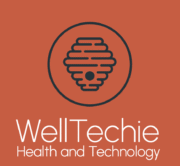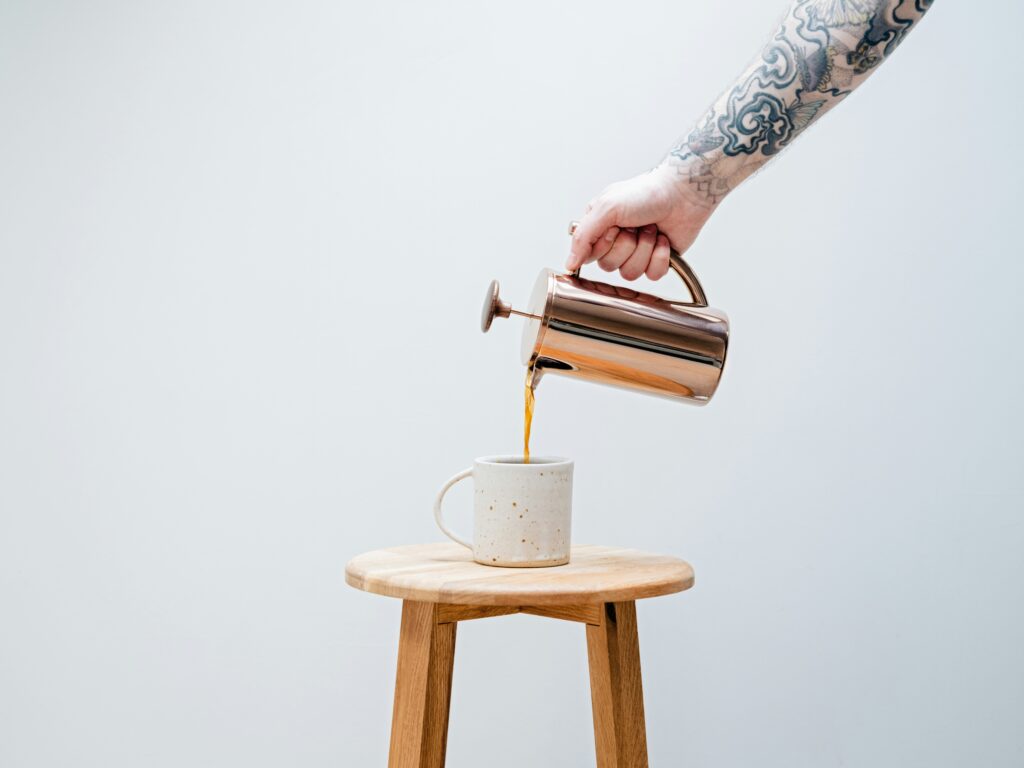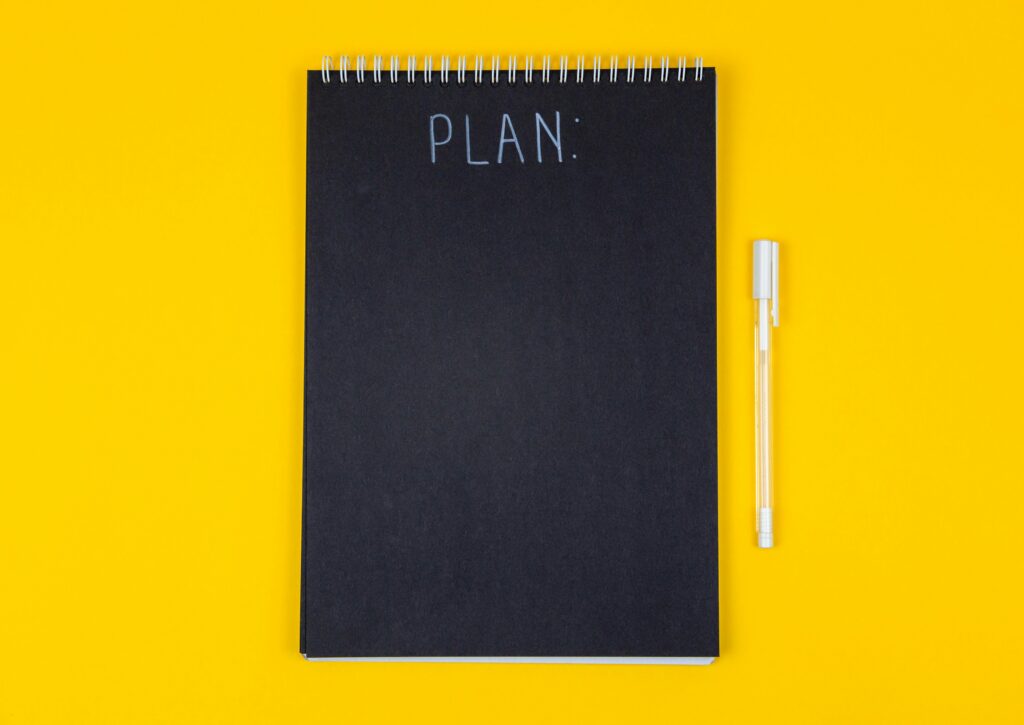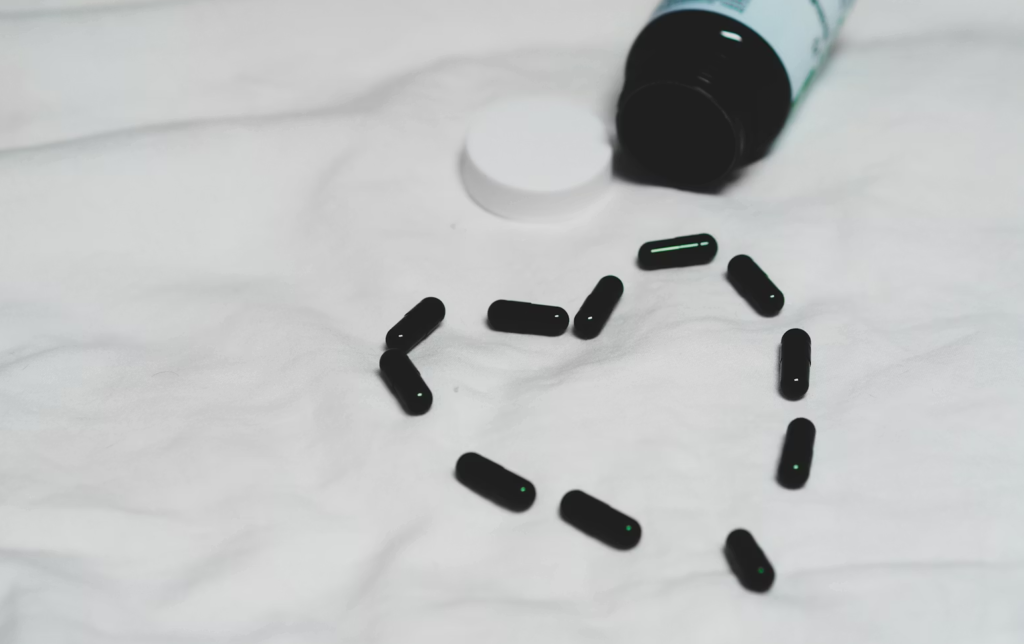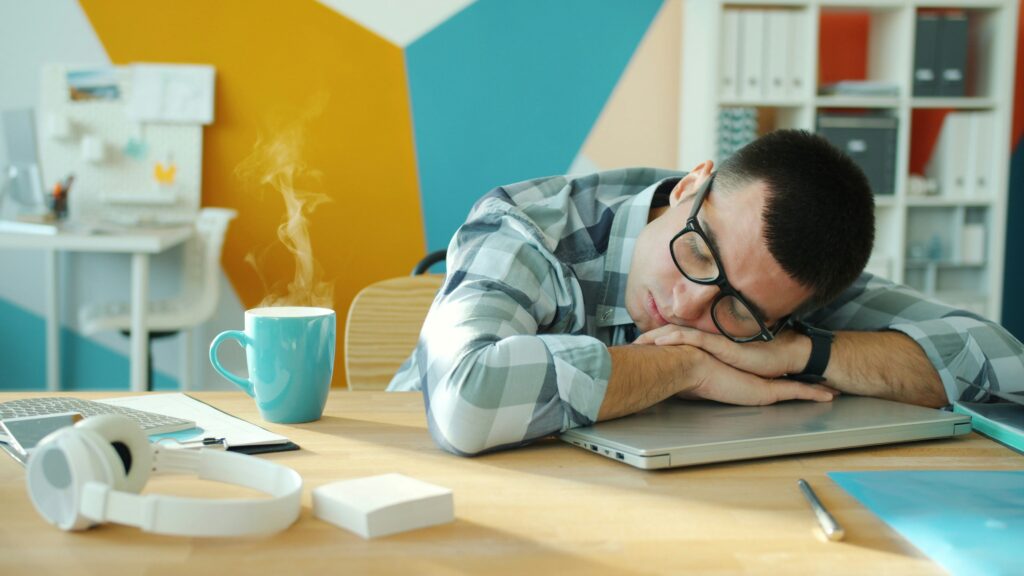If you’re like many people, the day doesn’t truly start until that first sip of coffee. But what if you could boost energy without caffeine and still feel alert, productive, and motivated all day long? Relying too heavily on caffeine often backfires – leading to jitters, afternoon crashes, and restless sleep at night. The good news is that your body has natural, powerful ways to generate energy, and you can learn how to use them to your advantage.
In this post, we’ll explore the most effective strategies for feeling energized without coffee or energy drinks. From better sleep and nutrition to hydration, movement, and stress management, these methods will give you lasting vitality. By the end, you’ll have a toolkit of simple but powerful lifestyle changes that will help you feel steady, alert, and in control of your energy all day long.
Prioritize Quality Sleep
One of the most important ways to boost energy without caffeine is by improving sleep. Many people underestimate how much poor sleep drains their daily focus and productivity. Even if you’re technically in bed for eight hours, interruptions, stress, or late-night screen use can prevent you from reaching the deep, restorative sleep your body needs.
Key things:
- Aim for 7–9 hours per night.
- Stick to consistent sleep and wake times.
- Create a relaxing bedtime routine with no screens.
- Keep your bedroom cool, dark, and quiet.
Once you build better sleep habits, you’ll notice your energy becomes steadier throughout the day. You’ll rely less on caffeine, think more clearly, and find it easier to stay motivated.

Stay Active with Regular Exercise
Exercise is another highly effective way to boost energy without caffeine. Even though working out requires effort, movement actually gives you more energy by increasing circulation, oxygen delivery, and endorphin release. This is why a short walk or light stretching can leave you feeling more awake than a cup of coffee.
To Do:
- 20–30 minutes of moderate activity such as brisk walking or cycling.
- Incorporating stretching or yoga for relaxation and flexibility.
- Adding strength training a few times per week for long-term stamina.
Regular activity doesn’t just boost your energy in the moment – it also improves sleep quality, reduces stress, and strengthens your immune system. Over time, exercise becomes one of the most reliable natural energy sources available.
Eat Energy-Enhancing Foods
Your diet has a huge impact on your energy levels. To boost energy without caffeine, you need steady fuel rather than quick bursts that lead to crashes. Processed foods and sugary snacks might give a temporary lift, but they also cause spikes and dips in blood sugar. Whole, nutrient-dense foods create stable, long-lasting energy instead.
Notes:
- Complex carbs like oats, quinoa, and sweet potatoes for steady fuel.
- Lean proteins such as eggs, chicken, or legumes to balance blood sugar.
- Healthy fats from avocados, nuts, and olive oil for long-term satiety.
- Plenty of fruits and vegetables for hydration and antioxidants.
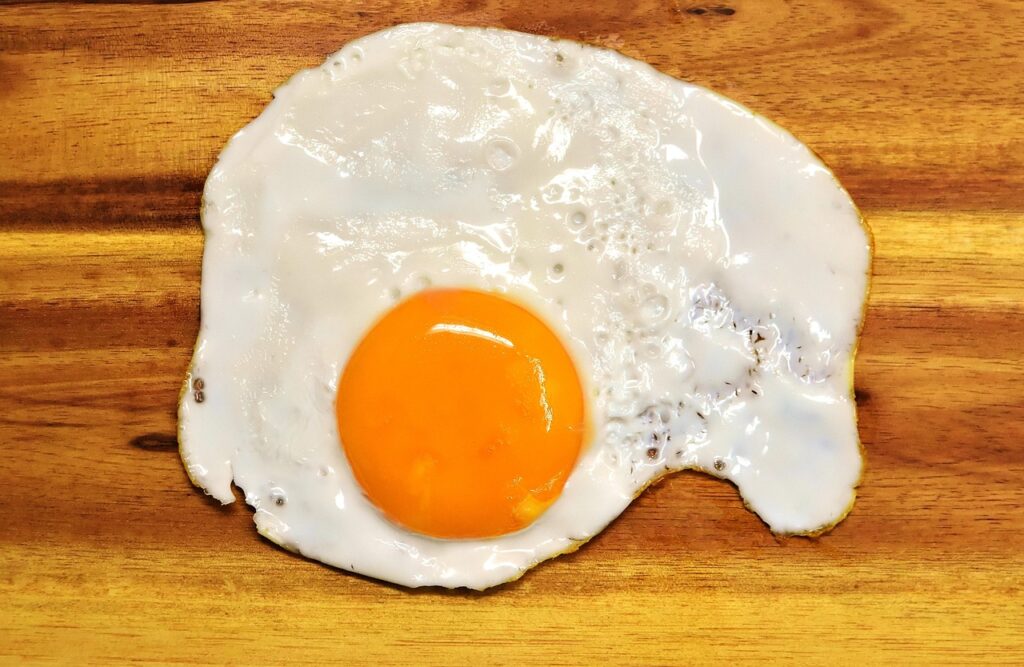
When you consistently eat balanced meals, you’ll notice improved focus, reduced cravings, and fewer energy crashes. Food truly becomes a natural energy source that works with your body rather than against it.
Stay Hydrated Throughout the Day
Dehydration is a surprisingly common cause of fatigue. Even slight fluid loss can make you feel sluggish, foggy, or irritable. Staying hydrated is one of the simplest and most effective ways to boost energy without caffeine, and it’s something most people can improve immediately.
Hydration for energy:
- Aim for 8–10 cups of water daily, adjusting for your activity level.
- Start your day with a glass of water to rehydrate after sleep.
- Infuse water with lemon, cucumber, or berries if you want more flavor.
- Use herbal teas or water-rich foods like fruits and vegetables to help.
When your body is properly hydrated, your brain functions better, your mood stabilizes, and you feel naturally more alert. Think of water as one of the easiest, fastest ways to regain focus.
Manage Stress with Relaxation Techniques
Stress is one of the biggest drains on your energy. When your body is under constant tension, it produces stress hormones like cortisol that can leave you feeling exhausted. Finding ways to manage stress is essential if you want to boost energy without caffeine in a sustainable way.
Stress management:
- Practice mindfulness or meditation for 5–10 minutes daily.
- Use deep breathing techniques to calm the nervous system.
- Journal, read, or spend time in nature to recharge mentally.
- Build regular breaks into your day to avoid burnout.
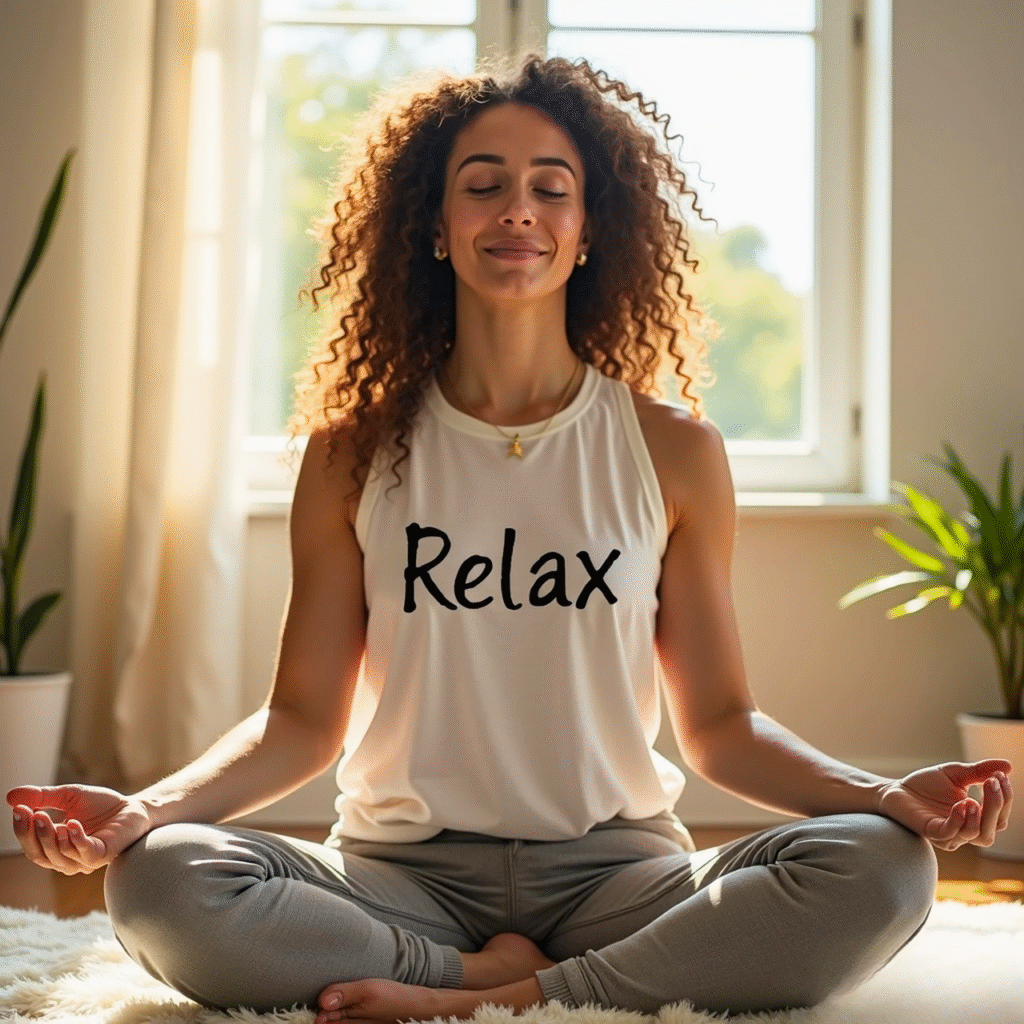
By making stress management part of your daily routine, you protect both your mental and physical energy. Over time, you’ll feel calmer, more resilient, and less dependent on coffee to push through challenges.
Get Natural Light and Fresh Air
Natural sunlight is a powerful but often overlooked energy booster. It regulates your circadian rhythm, which controls your sleep-wake cycle and overall energy levels. Fresh air also improves oxygen intake, clears your head, and supports focus. If you’re looking for simple ways to boost energy without caffeine, stepping outside could be one of the fastest fixes.
Natural light exposure:
- Spend 15–30 minutes outdoors daily, ideally in the morning.
- Open blinds or sit near windows if you work indoors.
- Use short outdoor breaks to refresh during long workdays.
These habits help your body stay in sync with natural rhythms, giving you more consistent energy during the day and better rest at night.
FAQs About Boosting Energy Without Caffeine
1. How quickly can I feel results from these strategies?
Some methods, like drinking water or getting sunlight, can improve your energy within hours. Others, like better sleep, diet, and exercise, take days or weeks of consistency for lasting results.
2. Can herbal teas help boost energy without caffeine?
Yes, teas such as ginseng, ginger, or peppermint provide a gentle lift without overstimulation. They also contribute to hydration and can help reduce cravings for coffee.
3. Is it possible to quit caffeine completely?
Yes. Many people successfully cut out caffeine by gradually reducing their intake. Pairing that with natural strategies like exercise, better sleep, and hydration makes the transition much smoother.
Your Natural Path to Lasting Energy
You don’t need coffee or energy drinks to power through your day. By focusing on restorative sleep, consistent exercise, balanced nutrition, hydration, stress management, and natural sunlight, you can boost energy without caffeine and create lasting vitality.
Instead of chasing short-term fixes, build daily habits that work with your body. Over time, you’ll notice sharper focus, steadier moods, and higher productivity – without the rollercoaster effects of caffeine. These natural energy strategies give you sustainable control over your well-being and help you feel your best every day.

